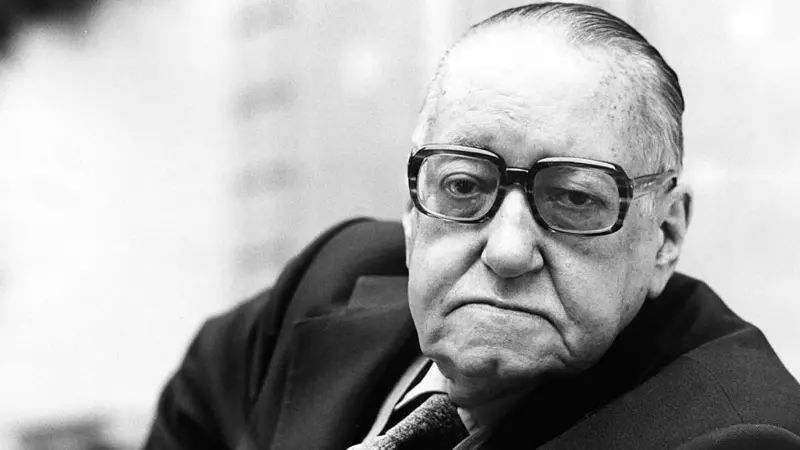Many of us would like to have his culture and to have written, at least, “The Kingdom of this World”, but the truth is that we were born to enjoy the readings of his novels, and newspaper articles that do not lose validity because they are written with a great waste of his erudition. I never forget the trips that Alejo Carpentier gave me to real and wonderful places through his beautiful texts.
As a journalist I have always considered José Martí, our National Hero, and Carpentier as the two great narrators of our Literature, a fact that has made it, like music, universal arts.
He died in Paris on April 24, 2004, while working as a cultural counselor at the Cuban embassy in France.
Described by the great critics as the most innovative of the contemporary Cuban novel, the author of “The Age of Enlightenment” recreated the marvelous reality of the Caribbean.
The author of Ecué-Yamba-O! he was the second in the long list of great creators to receive the Cervantes Prize, the highest award in Hispanic literature, which meant a great recognition of one of our most universal voices, when we talk about Cuban Literature.
It is said that when he received the Cervantes Prize in the Spanish city of Alcalá de Henares, in his speech, he gave an intellectual lesson from his excellent condition as an essayist.
Oblivious to empty images, Carpentier’s discourse is an essay of wisdom, which he undertakes, surrounded by the beloved ghosts of those characters in the literary field where contemporary novels were consolidated from the nineteenth to the twentieth centuries.
In the face of the eternal lamentations, also present at the time, about the crisis of the novel, our author replied: “There is not and will not be a crisis of the novel, as long as the novel is an open novel, a novel of many, a novel of good and strong variations – if you will pardon the musical term – on the great themes of the time, as the exemplary novel was in its time, at the same time local and universal, by Miguel de Cervantes Saavedra”.
Then he found his tone and gave us the stories of the Time War, his great novels and novelettes with the gaze that emerges from 1943, when he travels to Haiti and lives the awakening of the wonderful American real.
Alejo discovered America from pragmatism and experience, to add to the wealth of his many readings, carried out on American themes, in Paris, in the midst of the emergence of surrealism.
Intelligence and sensitivity made him understand that he had nothing to contribute to the surrealist movement, just as that could not be the gaze that America revealed.
With the novel “The Kingdom of this World” the situations of Mackandal and the cosmogony that nourishes the essence of the process of the Haitian Revolution are narrated, in the first political action that led a people of America to independence, the atmosphere of the kingdom of Henri Christophe, the mythology of Toussaint Louverture himself, allowed its “Faustian” revelation.
Carpenter’s narrative was based on the discovery of the wonder that exists in reality because, as he once said: “America is very far from having exhausted its wealth of mythologies.”
From living history, with another look at time and also another conception of what culture is, emerged the novels of Carpentier, who said: “But what is the history of America as a whole if not a chronicle of the marvelous real?”
It was on April 24, the cruelest month, according to the poet T.S. Eliots, when our great writer of the twentieth century, Alejo Carpentier, departed for eternity.
By: José Miguel Ávila Pérez/ Translated by Radio Angulo
- Installation of Photovoltaic Systems in Rural Communities in Holguin - 19 de January de 2026
- 39th City Salon Opens in Holguin - 19 de January de 2026
- Habanos Festival Among Cuba’s Most Important Tourism Events - 19 de January de 2026

